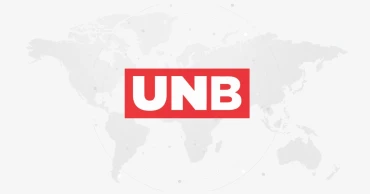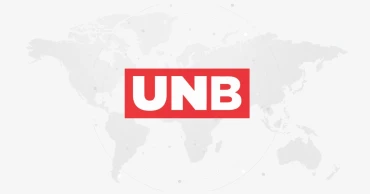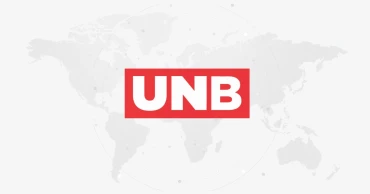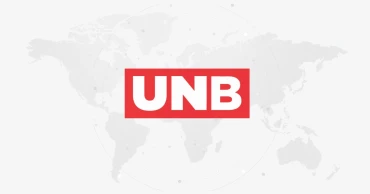Investor
Silent Partner vs Investor in Business: Know the Difference, Pros and Cons
Starting a business is exciting, but it requires capital to get off the ground. While there are various ways to finance a business, two common options are having a silent partner or seeking an investor. Both options can bring in the necessary funds but have different implications for the business' ownership and management. This article will explore the key differences between a silent partner and an investor, including their roles, responsibilities, and expectations. By understanding these differences, a business owner can decide which funding option is the right fit for his or her business and associated goals.
Who is a Silent Partner or Sleeping Partner in a Business?
A silent partner, also known as a sleeping partner, is an individual or entity that invests money in a business without actively participating in its management or operations. In other words, a silent partner provides capital and shares in the profits or losses of the business but does not take an active role in decision-making or day-to-day operations.
Silent partners are typically passive investors who are looking for a return on their investment, and they may not have any expertise or experience in the industry or market of the business they are investing in. While they do not participate in the management of the business, silent partners may still have some rights and responsibilities, depending on the terms of the partnership agreement.
Read More: What to Consider Before Investing in a Startup or Company?
Differences Between a Silent Partner and an Investor
Although a silent partner and an investor both provide capital to a business, there are key differences between the two.
Role and Involvement
A silent partner provides capital without actively participating in the management or operations of the business. On the other hand, an investor may take on an active role in the business and offer strategic guidance and expertise.
Risk and Liability
Silent partners generally have limited liability and are only liable for their investment amount. In contrast, investors may have unlimited liability and potentially lose more than their initial investment.
Read More: What to Consider Before Buying Land: A Step-by-Step Guide
Return on Investment
Silent partners typically receive a share of the profits based on their ownership stake, while investors may receive a return on investment in the form of equity, interest payments, or a combination of both.
2 years ago
US keen to be number one investor in Bangladesh: Ambassador Haas
US Ambassador Peter Haas has said that his country wants to be the leading investor in Bangladesh.
"The United States intends to be number one investor in Bangladesh", he told reporters after visiting Meghnaghat 584 MW Combined cycle power project on Wednesday.
The Ambassador said that the US companies are excited by the market in Bangladesh.
Referring to his statement at the Bangladesh investment summit, he said the US companies are looking to invest in Bangladesh as the country has the eight largest population in the world.
"It's a fast growing economy and the government is trying to improve the governing environment. I'm optimistic the US will remain the number one investor in Bangladesh".
Mentioning the power plant as an efficient one in terms of environment, he urged the government to provide gas supply to the Meghnaghat power plant as it will generate electricity consuming half of the gas required for similar capacity of the power plant.
"This power plant will serve 700,000 homes using half of the gas compared to other power plants".
He said Bangladesh now navigates the global current crisis in terms of energy supply, energy cost and the difficulty of monetary supply
"There is no better metaphor that the US Companies and our people are with Bangladesh through rain or shine", he said while it was raining during his speech.
Joseph Giblin, Chief of the Economic Unit in U.S. Embassy, Dhaka, Chowdhury Nafeez Sararat, Managing Director, Mohd. Noor Ali, Chairman, Mohammad Jahir Uddin Mollah, Chief Executive Officer of the Company and Deepesh Nanda, CEO of GE Gas Power, South Asia among others, accompanied him during the visit.
Unique Meghnaghat Power Limited (UMPL), a consortium of Strategic Finance Limited, Unique Hotel & Resorts Limited and General Electric (GE) of USA, has been implementing the 584 MW Gas-based combined cycle power plant as independent power producer (IPP) at Meghnaghat in Narayanganj under a contract with the government.
State-owned Power Development Board (BPDB) will purchase electricity from the plant over a period of 22 years.
Project officials said that about 92 percent of the total project construction works have been completed and the plant will come into commercial operation in October 2023.
Mohd. Noor Ali, Chairman of UMPL said that it is a symbol of the capabilities of the private sector of Bangladesh. This is a highly efficient power plant and it will surely take top position in the demand order or merit order from the off-taker (BPDB).
UMPL Managing Director Chowdhury Nafeez Sarafat said that the contribution of US companies, including GE, in providing the latest technology gas turbines to Bangladesh's much-needed power infrastructure.
He also said that UMPL, a collaboration of international investors, including GE and Nebras, alongside lead investors from Bangladesh, has secured international debt financing from SERV, AIIB, DEG, and OPEC Fund. This financing will make it a world-class infrastructure project, providing cleaner, reliable, and affordable electricity to the people of Bangladesh.
Mentioning the project as a less carbon emitter he said the project will be a big contributor to the commitment of Bangladesh to achieve nationally determined contributions as per Paris Agreement.
In this plant, GE’s latest 9HA.01 Gas Turbine has been used which will operate at more than 62% efficiency whereas the traditional gas turbine efficiency is around 30-40 percent, he added.
Deepesh Nanda, CEO of GE Gas Power, South Asia said “GE Gas Power is committed to bring affordable, reliable and sustainable power generation technology to Bangladesh and has been contributing to transform the power sector in the country by offering advanced powering technology and power services solutions.
2 years ago
Tk 2829 crore: What capital market investors lost in a week
Capital market investors in Bangladesh suffered losses amounting to Tk2829.94 crore last week (Sep 25-29), according to the weekly market transactions.
Of the total five working days, the market saw three days of decline and two days of rises in the index.
Both trades and indexes were during the week. Share prices of most of the traded companies also fell. As a result, the market capital of investors has decreased by Tk2829 crores.
Read: Shakib’s company involved in share manipulation, DSE investigation finds
Shares and units of 386 companies were traded in Dhaka Stock Exchange (DSE), the main capital market of the country. Of them, 61 companies' share prices increased, 173 decreased, and 152 were unchanged.
The DSE index fell by 51 points to 6,512 points in the week as the share prices of most companies fell. Among the other two indexes of DSE and DSES (Bangladesh Dhaka Stock Exchange Broad Index (DSEX) including value, chart, profile and other market data ) decreased by 17 points to 1419 points and the DS-30 index decreased by 35 points to 2330 points compared to the previous week.
Bangladesh Market capitalization (capital) decreased by Tk 2829.94 crore in the week due to a decrease in index and price. But in the previous week, the capital had increased by Tk2617.42 crore.
Read Strengthened capital market to drive growth: Finance Minister
The market capital of Bangladesh at the beginning of the week was Tk 522763.99 crore. After trading on Thursday, the last working day of the week, the capital stood at Tk 519 914.04 crore. The capital decreased by 54 percent.
The main DSE index fell by 51 points to 6,512 points in the outgoing week as the share prices of most companies fell. Among the other two indices of DSE, the DSES index decreased by 17 points to 1 419 points and DS-30 index decreased by 35 points to 2330 points compared to the previous week.
3 years ago
Special economic zone not enough to attract best investors: US Envoy
US Ambassador to Bangladesh Peter Haas has said a smart company considering doing business overseas will certainly want “certainty and security” as political violence and electoral instability “scare” them.
He said a smart company considering doing business overseas also wants to see certain things, including a developed transportation system, consistent access to power and water, and a well-trained workforce and Bangladesh has made great strides in filling these needs.
The US envoy said the international companies and investors must become more aware of the opportunities Bangladesh presents.
Read:South Korean envoy Lee for strengthening infrastructure cooperation with Bangladesh
“Bangladesh must be ready to welcome American businesses,” ambassador Haas said while speaking at a programme hosted by International Business Forum of Bangladesh (IBFB) at a city hotel on Tuesday as the chief guest.
Founding President of IBFB Mahmudul Islam Chowdhury, Chairman of Policy Research Institute of Bnagladesh Dr Zaidi Sattar, Ambassador and Head of Delegation of the European Union Charles Whiteley, IBFB President Humayun Rashid and its Vice President MS Siddiqui also spoke.
Hailing Bangladesh’s economic progress over the years, ambassador Whiteley said the country needs to work ensuring equal level playing field for both local and overseas investors.
Read Policy reforms, strong governance needed for completion of EZs: BEZA chief
He said the EU wants to work with Bangladesh for her smooth transition from the LDC. “EU wants to boost commercial ties further as the largest trading partner of Bangladesh.”
Ambassador Haas said there are strong reasons to look at Bangladesh for market opportunities and Bangladesh is worthy of their attention.
“Even in these challenging times, Bangladesh has a great macroeconomic story to tell. It has been among the fastest growing economies in the world over the past decade,” he added.
Read UK to invest 54.5 mn pounds for children in Bangladesh by next 8 years
Its GDP grew even during COVID-19 lockdowns, and, according to the Asian Development Bank, the economy is estimated to grow by 6.6 per cent over the next year.
The country’s financial leaders have so far managed its debt well and are taking important steps to deal with the inflationary pressures resulting from Russia’s unprovoked invasion of Ukraine.
“Yes, times are tough. And as the World Bank recently pointed out, Bangladesh needs additional reforms in order to maintain its economic expansion going forward. But so far, the macroeconomic situation seems manageable,” said the US envoy.
Read BGMEA, Eswatini for investment in apparel, textile joint ventures
3 years ago
India's billionaire investor Rakesh Jhunjhunwala dies
India's first billionaire investor Rakesh Jhunjhunwala, who started his investing career with 100 US dollars, died at a hospital in Mumbai on Sunday morning. He was 62.
Jhunjhunwala was rushed to Mumbai's Breach Candy Hospital around 7am (local time) after he complained of severe chest pain. However, he was declared dead on arrival, family sources told the local media.
The ace investor's demise comes a week after he launched India's newest passenger airline, Akasa Air.
Read: India's Sonia Gandhi tests positive for Covid
Popularly called "India's Warren Buffett" and the "Big Bull", Jhunjhunwala's net worth was estimated to be some 5.8 billion US dollars. A qualified chartered accountant, he was ranked the 36th richest billionaire in India.
Indian Prime Minister Narendra Modi took to Twitter to condole his untimely death.
"Jhunjhunwala was indomitable. Full of life, witty and insightful, he leaves behind an indelible contribution to the financial world. He was also very passionate about India’s progress," he wrote.
The son of an income tax officer, Jhunjhunwala embarked on his investment career at the age of 25. He later founded his own investment firm, Rare Enterprises.
He is survived by his wife Rekha and three children.
3 years ago
Why investors fleeing Chinese property market see India as an opportunity
Investors have been taking refuge from the Chinese real estate debt crisis in pockets of the broader Asian credit market, and cite India among opportunities that are relatively insulated from the historic turmoil, reported Business Standard.
Goldman Sachs Group Inc. has recently adopted a positive stance on Asia high-yield bonds. Bank of New York Mellon Corp. data indicate South Korea, Indonesia, Singapore, India, Malaysia and Japan all recorded capital inflows into corporate debt in the three months through Jan. 18, while China experienced outflows.
Rising inflation means there have still been losses for broader Asian bonds-- as there have been in many parts of credit markets globally -- but they’ve been much milder. Dollar notes of all ratings from Chinese issuers have lost about 3.7% in 2022 even after a rally in recent days for property developer securities sparked by policy support.
That compares with just 1.5% for Indian borrowers, 0.8% for South Korean firms and 0.7% for Philippine credits, according to a Bloomberg index.
Also read: India is world's top exporter of cucumber and gherkins
“Investors have been hiding in Indian investment-grade and high-yield credit, and other parts of Asia outside of China, as a means to reduce their exposure to China property,” said Wai Mei Leong, a portfolio manager at Eastspring Investments.
One recent example of a money manager to have cut exposure to Chinese bonds is BDO Capital & Investment Corp., which sold its holdings of such securities, President Eduardo Francisco said last week.
Both Goldman and CreditSights consider Indian companies attractive. The U.S. bank recommends high-yield renewables, while the latter considers financial firms to be best shielded from the troubles in the world’s second-largest economy.
Still, there are plenty of risks for the broader Asian credit market. Because of demand from investors seeking to diversify, CreditSights said valuations for Asian credit outside of China have already been driven tighter. That means many South and Southeast Asian names warrant only a market perform rating, despite good fundamentals, it said.
Having taken a beating last year and for the first couple weeks of 2022, Chinese property dollar bonds have rallied in recent sessions thanks to a string of policy steps to ease restrictions on the real estate industry and broader monetary stimulus. But the outlook is highly uncertain, with more defaults expected, according to Goldman.
If the failures don’t get out of control, that may sustain interest in other pockets of the Asian market, but any prolonged crisis would cause an economic slowdown that would have ripple effects across Asia. Chinese debt constitutes an outsized share in regional indexes. Investors could decide to pull out entirely.
Also read: India test-fires latest version of BrahMos supersonic cruise missile
Facing requests for redemptions, bond fund managers “have to sell a bit of everything,” said Jean-Louis Nakamura, chief investment officer for Lombard Odier in Asia Pacific. “I’m afraid that this kind of indirect weakening of the Asia credit market will continue for some time.”
But for now the Asian credits outside China are offering lower volatility and some country-specific shifts have encouraged investors.
When it comes to tapping global financial markets, India trails economies like Brazil and South Africa, not least because the country’s central bank has historically been wary of hot money inflows. Yet the past few weeks have seen a surge of dollar-denominated issuance, with Reliance Industries raising $4 billion earlier this year in India’s biggest-ever foreign currency bond deal.
There’s also been an increase in green- and sustainability-bond sales, bringing it more in line with the trend elsewhere.
“We quite like the India space because there is a lot of ESG bond supply coming from those companies and they aren’t quite expensive compared with other Asian peers,” said Paula Chan, a senior portfolio manager at Manulife Investment Management (Hong Kong) Ltd. “Supply from there also offers quite a good diversification
4 years ago




.jpg)
.jpg)



